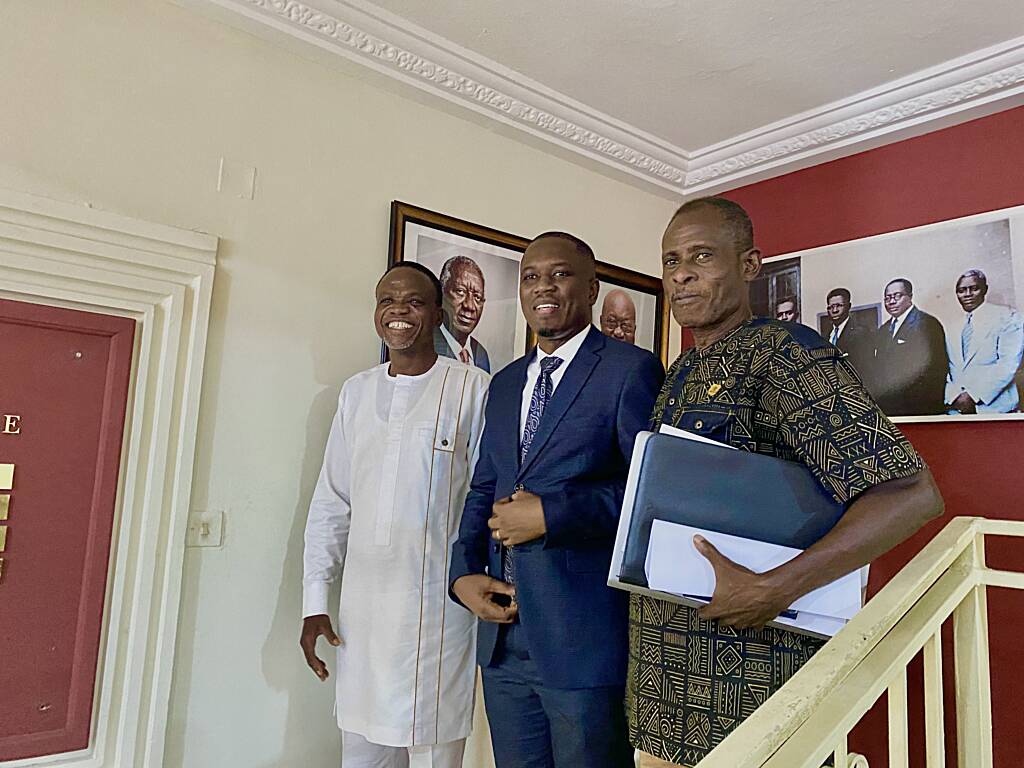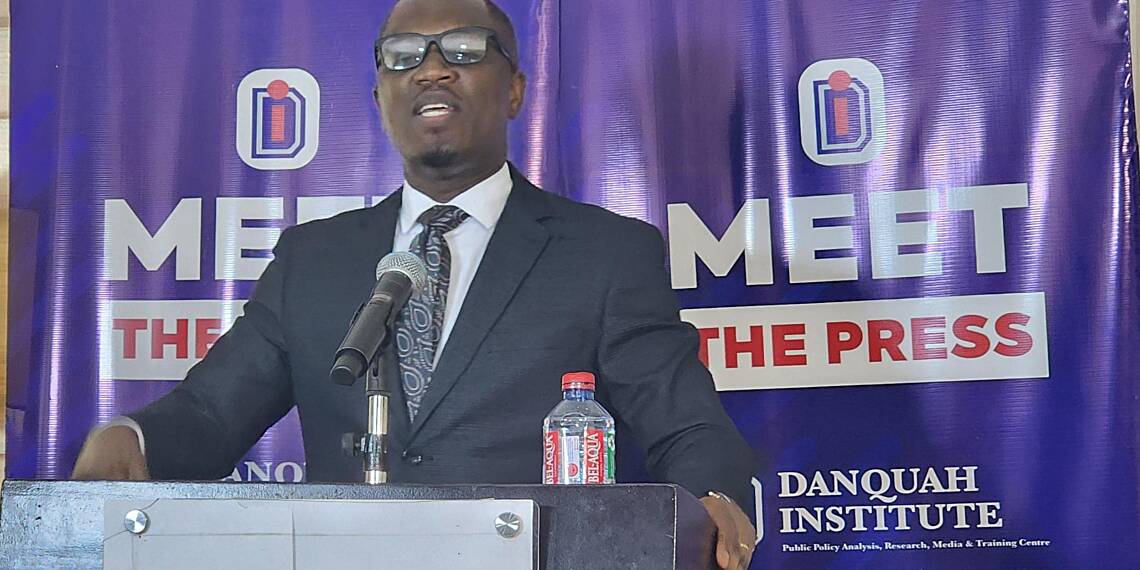By: Kobina Baidoo
The Danquah Institute gathered brilliant minds from various sectors and members of the press for a detailed presentation on Ghana’s economic condition prudently handled by the ruling government of Ghana.

The press conference which took place on Tuesday, February 13, 2024 at the premises of the Danquah Institute captured a variety of losses and gains made by governments over the years dating as far back as 2011.
Dr. Frank Barnor, Head of Research at the Danquah Institute followed a well detailed presentation which ranged from inflation surges and recession, tax to GDP ratio, exchange rates, fiscal policy, gross international reserves and the impact of financial aid from the Central bank and the IMF towards building Ghana’s economy.
Facts about Ghana’s economy were gathered from credible sources like Bank of Ghana, Ghana Statistical Service, the International Monetary Fund (IMF) which gave enough credence to the posited facts about Ghana’s economy performing far better in the past 7 years than any other government which came to power.
According to research sourced from the Ghana Statistical Service, Ghana’s GDP which will correlate with positive economic conditions, increase in employment opportunities and increase in production nationwide had seen a decline in 2011 and further declined all through 2014-2015. “In 2011 after commencement of oil production in commercial quantities began, the country recorded a historical GDP growth rate of 13.95% after oil had been discovered in 2010. This growth rate declined to 2.68% in 2014 and further declined in 2015 to 2.12%”
The researcher asserted that Ghana’s GDP had seen a steady rise in 2017, as it picked up from the brief surge which occured in 2016 to 3.3% . “Our research confirms that Dr. Bawumia rightly pointed to the fact that Ghana’s GDP growth averaged 3.9%. Comparatively as Dr. Bawumia emphasized between 2017 and 2020 GDP growth surged to an average of 5.3% in fact in 2017, GDP actually grew from 3.3% to 8.12% which was largely influenced by the oil sector.”
Dr. Barnor gave a frantic scenario to express the level of frustration Ghanaians faced due to inflation that rose from 2011 to 2016. The Bank of Ghana labeled this rise as the headlining inflation of 8.8% as of 2011, and 17.7% by 2015. This inflation was accompanied by the rampant power outages that took place in this time period, known as ‘Dumsor’. He added that all these occurred while the global environment remained relatively stable.
Acknowledging the effects of the cedi’s value decrease on Ghanaians in 2022, the academic expounded the causes that led to such a recession in that year. He attributed the recession to a global economic crisis which began at the end of 2021. He explained that, “During 2022, many major international trading currencies including the U.K’s pounds sterling depreciated against the U.S dollar; as an institute we recognize the economic challenges that the persistent depreciation of the cedi in 2022 imposed on Ghanaians why it happened is what we must look at.”
Ghana at the time (approximately late 2021), as indicated by the Bank of Ghana, Ghana had $9.9 billion gross international reserves equating to 4.8 months of import covered. The academic attested to the fact that not only was this Ghana’s highest reserve level since 1957 but was enough to ensure Ghana’s wellbeing should the unexpected emerge.
However, as of December 2016, he noted that Ghana’s international reserves could only cater for 2.8 months of import. “If you are to juxtapose if a global catastrophe like COVID 19, should have taken place in 2016 with just 2.8 months import cover you could have imagined what could have happened to Ghanaians even with almost 5 months import cover; just imagine finding yourself with an import cover of just under 2.8. That would have been catastrophic for the average Ghanaian and Ghana’s economy.
Attached to the facts that enlightened Ghanaians about the tireless efforts of the ruling government to stabilize Ghana’s economy, the Danquah Institute official intimated that Ghana’s borrowing was seen in a bad light. He revealed that borrowing from the IMF and other state firms was to fund deficits, to manage revenue fluctuations, balance boom and bust cycles, and fund infrastructural investments.
Nevertheless, he recommended that a very effective way to minimize that nation’s borrowing is to focus on the fiscal policy with regards to tax to GDP ratio. “If we need to stop borrowing we must enhance our tax to GDP ratio. Introducing a new tax or increasing already existing taxes.” This evidently has already taken form in recent times. He however clarified that, “Increase in already existing taxes not in the context of burdening Ghanaians with extra taxes to pay, but rather spreading it out into a variants across the various sectors.”
With these stated facts researched and proposed by the Danquah Institute, the NPP government holds a distinctive performance which is far better than its predecessors and are hence the best government to drive Ghana’s economy.


















